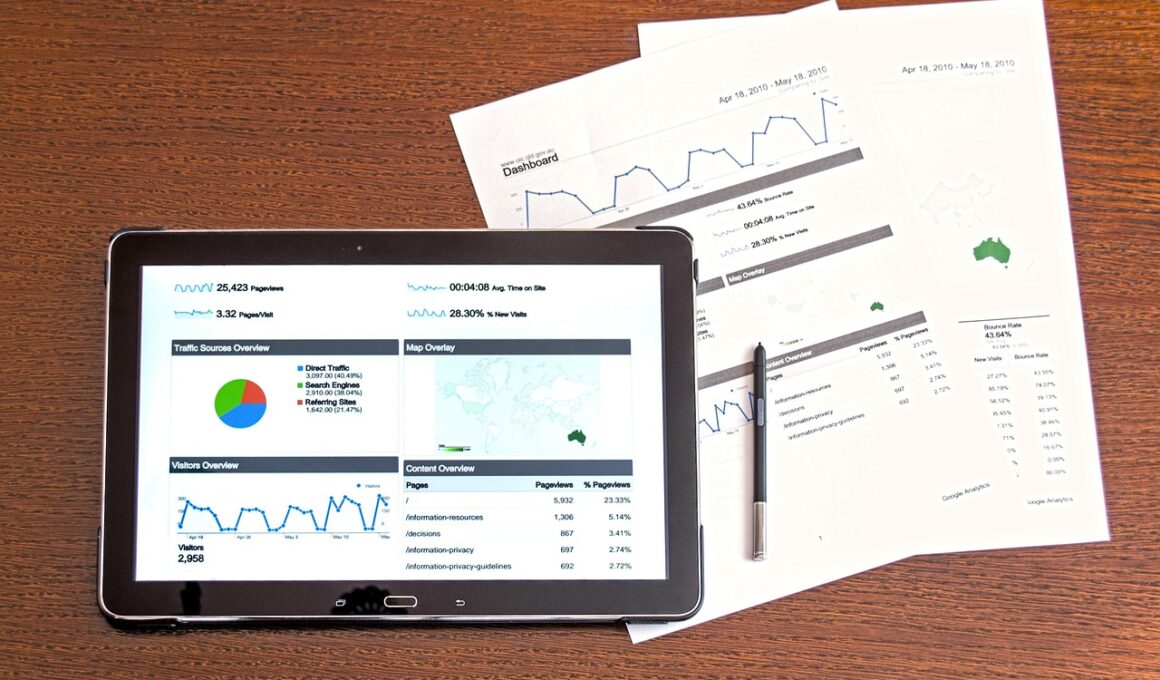Leveraging CRM Data to Track B2B Marketing KPIs Efficiently
In today’s competitive business landscape, tracking Key Performance Indicators (KPIs) for B2B marketing has become essential. Customer Relationship Management (CRM) data offers rich insights that can refine strategies and improve decision-making. By effectively harnessing this data, organizations can gain a clearer understanding of their marketing effectiveness. Effective tracking involves identifying the most relevant KPIs for your objectives, such as lead generation rates, conversion rates, and customer retention. These metrics can be monitored continuously to ensure real-time adjustments can be made. Utilizing CRM enables the collection and analysis of both qualitative and quantitative data, which can highlight customer behaviors and preferences. When implemented correctly, a CRM system seamlessly integrates various marketing channels, providing a centralized view of performance. With tools like reports and dashboards, stakeholders can visualize trends and adjust strategies accordingly. Investing in a robust CRM system allows for streamlined processes and improved marketing ROI. The ability to filter and segment data empowers marketers to create targeted campaigns. Consequently, leveraging CRM data becomes a game-changer for enhancing B2B marketing initiatives.
Understanding the Importance of Metrics
Understanding the importance of metrics in B2B marketing cannot be overstated. Metrics serve as the foundation for evaluating the success of marketing campaigns and initiatives. Without a clear framework for measuring performance, organizations risk misallocating resources and missing opportunities for growth. Effective metrics should encompass a wide range of data points, including customer acquisition cost, lifetime value, and lead-to-customer ratios. These metrics guide strategic planning and can influence budget decisions. Moreover, they provide insight into which marketing channels are yielding the best results, promoting the optimization of resources. By consistently reviewing these metrics, companies can pinpoint trends and make data-driven choices that align with business objectives. Additionally, tracking these metrics enhances accountability within marketing teams, ensuring everyone is aligned towards common goals. The use of CRM data to support this tracking process further enhances precision. A robust CRM system not only captures data but also presents it in a user-friendly format. This accessibility of information allows for timely adjustments and strategic pivots when necessary. Ultimately, understanding and applying the right metrics will ensure sustained success in B2B marketing.
Another critical aspect of leveraging CRM data is identifying target audiences effectively. Segmentation allows businesses to categorize their audience based on various criteria such as demographics, purchasing behavior, and engagement levels. Understanding these segments enables marketers to tailor their outreach effectively. A well-segmented audience will engage more with personalized content, improving the overall marketing performance. CRM systems help in gathering and analyzing this data accurately. By employing detailed segmentation, marketers can focus their efforts on high-potential leads. It enables them to craft messages that resonate and solve specific pain points faced by different audience segments. This targeted approach not only boosts conversion rates but also increases overall customer satisfaction. Moreover, it strengthens the relationship between the brand and its audience. Timely interactions based on customer behavior make relationships more meaningful. By implementing automated campaigns through CRM tools, teams can track engagement and adjust messaging based on real-time feedback. This agility in communication fosters stronger connections with customers, resulting in longer-lasting loyalty. Ultimately, effective targeting through CRM data significantly enhances marketing effectiveness and contributes to overall business growth.
Measuring ROI through CRM Data
Measuring Return on Investment (ROI) is crucial in assessing the success of B2B marketing campaigns. Tracking ROI accurately requires a comprehensive understanding of both costs and benefits associated with marketing activities. CRM data plays a vital role in this evaluation process by providing insight into customer journeys and conversion metrics. To determine ROI effectively, marketing teams must account for all expenditures, including technology investments, human resources, and operational costs. Utilizing CRM systems aids in attributing revenue to specific marketing efforts, such as lead generation campaigns. By analyzing this data, teams can identify which strategies contribute most to the bottom line. Consequently, those insights allow organizations to allocate budgets more effectively, ensuring higher returns in future campaigns. Additionally, having a clear picture of ROI fosters a culture of accountability within marketing departments. Each team can see the direct impact of their efforts, encouraging continuous improvement in strategies. CRM tools also support the generation of detailed reports that outline performance against KPIs, giving stakeholders valuable insights into financial contributions. This data-driven approach encourages transparency and more informed decision-making.
Incorporating feedback mechanisms into B2B marketing strategies is paramount for growth and improvement. Feedback allows businesses to understand customer perceptions better and adjust their strategies. Integrating feedback loops within CRM processes provides valuable insights into customer satisfaction and areas for improvement. Marketers can gather feedback through surveys, interviews, or automated responses post-interaction. This information can be analyzed alongside existing CRM data to create comprehensive customer profiles. By understanding customer preferences and pain points, companies can refine messaging and product offerings to better meet their audience’s needs. Moreover, systematic feedback helps identify patterns over time, allowing businesses to anticipate changing trends. Establishing a routine for reviewing and acting upon feedback ensures continued relevance in a competitive market. Additionally, addressing customer concerns demonstrates a commitment to service excellence, fostering loyalty. The integration of feedback into CRM processes supports a more customer-centric approach, ultimately driving retention rates. Companies that prioritize feedback are likely to enhance customer experiences significantly, leading to higher referrals and more organic growth. As a result, utilizing feedback through CRM data becomes a key pillar in strengthening B2B marketing efforts and sustaining long-term success.
Automation and CRM Integration
Automation within the realm of B2B marketing has revolutionized how businesses approach their strategies. Integrating automation tools with CRM systems can lead to significant efficiency gains. This combination allows marketing teams to streamline their processes, automating repetitive tasks such as emailing, scheduling, and data entry. By implementing automated workflows, companies can free up valuable time for marketers to focus on strategic initiatives. For instance, automated lead nurturing campaigns can be set up based on specific criteria obtained from CRM data. This ensures that potential clients receive timely, relevant information, guiding them through the sales funnel effortlessly. Moreover, automation allows for real-time data updates, ensuring that marketing efforts are based on the most current insights available. By leveraging automated reporting features within the CRM, teams can monitor their performance without manual effort. Furthermore, the synergy between CRM and automation enhances lead scoring capabilities, which helps prioritize prospects based on their engagement. Overall, automation combined with CRM integration creates a formidable framework for executing effective B2B marketing campaigns and achieving targeted outcomes.
The future of tracking B2B marketing KPIs lies in continuous adaptation and innovation. As technology evolves, so do customer expectations and behaviors. Adapting to these changes requires a robust approach to utilizing CRM data effectively. Trends such as AI and machine learning are on the rise, providing opportunities for smarter data analysis and enhanced decision-making. Together, these technologies can uncover hidden patterns in CRM data, enabling more informed strategies. Organizations must prioritize staying ahead of these trends to refine their marketing efforts continually. Additionally, fostering a culture of experimentation will allow teams to test new approaches based on CRM insights. By encouraging creativity and innovation, organizations can explore diverse strategies that capitalize on data-driven insights. The iterative process of testing and refining approaches ensures that B2B marketing strategies remain relevant. Furthermore, investing in training for marketing teams regarding new technologies and CRM features is essential for maximizing effectiveness. This preparedness will ultimately translate into more successful campaigns and stronger relationships with customers. The ongoing commitment to leveraging CRM data intelligently will secure a competitive advantage in the ever-evolving B2B market.





